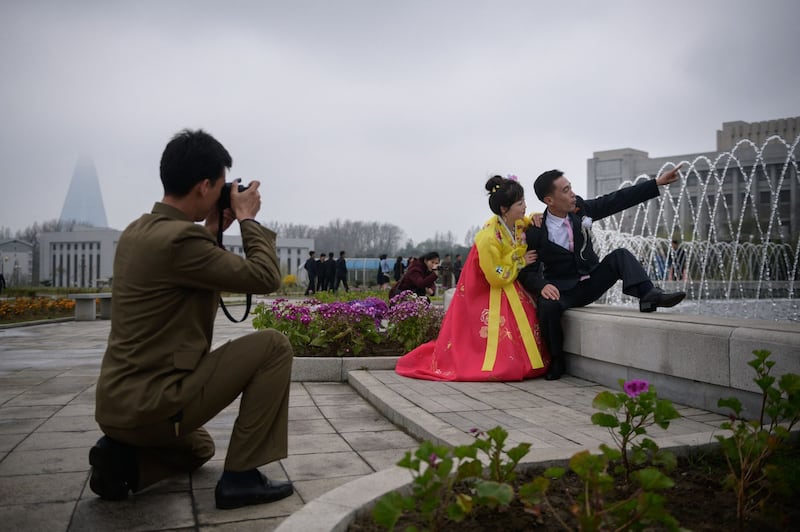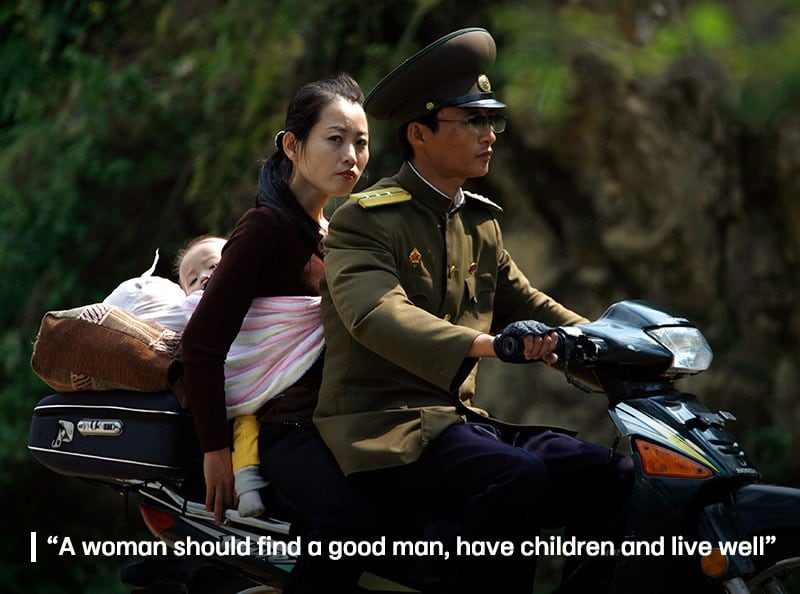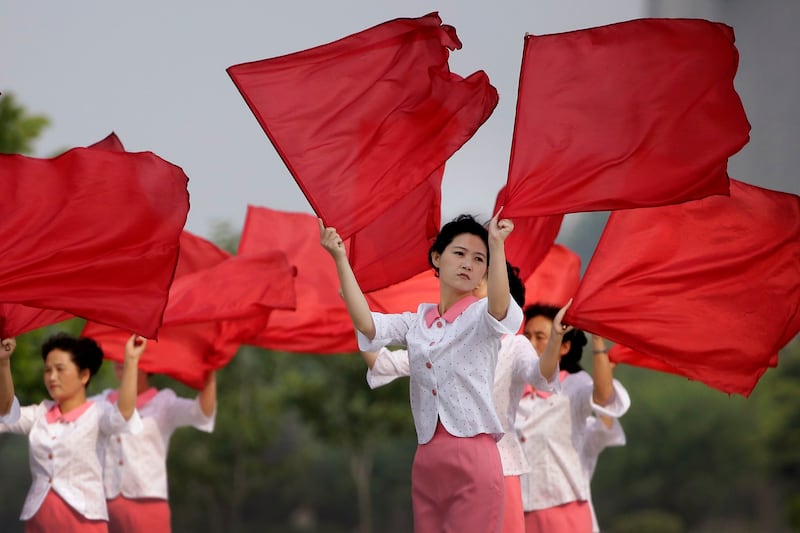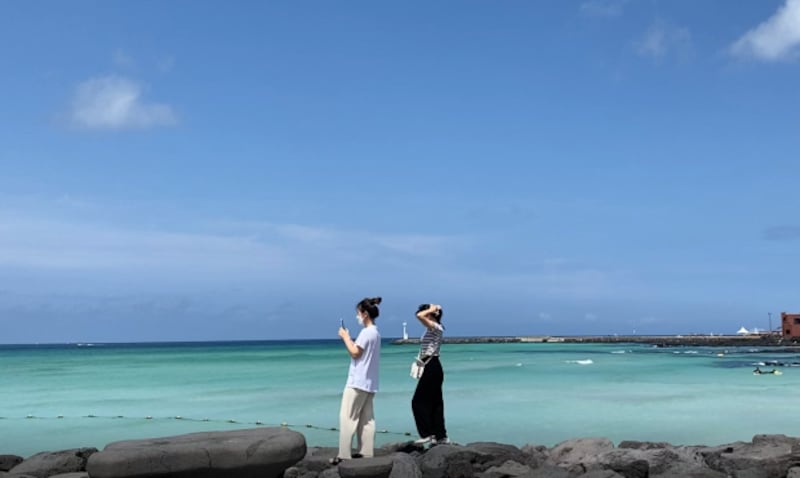Kim Seo-yeong and Lee Su-jin left North Korea to make a dangerous 3,700-mile-trek to freedom not only to escape a tyrannical government and a dire economy. They also wanted to escape a relentlessly patriarchal society that would have tied their destinies to the men in their lives.
In North Korea, they said, their identities would be limited to being wives, mothers or housekeepers. As two twenty-somethings, Kim Seo-yeong and Lee Su-jin (both pseudonyms) yearned for more.

“To be honest, I lived a hopeless life in North Korea,” Kim Seo-young told RFA. “It’s not easy to live in a society where I can’t do what I want to, and where my efforts don’t bear fruit.”
She and Lee Su-jin were part of a group of 13 North Korean escapees who arrived in Southeast Asia in October 2019, en route to their final destination, South Korea, the following year.
“Not being allowed to pursue my dreams pained me the most,” Lee told RFA.
"I really wanted to attend medical school, but I couldn't go because of my todae," she said, referring to the North Korean government's practice of ranking every citizen's social standing based on their assessment of their family's loyalty dating back several generations.
"Many people are held back by their todae, no matter how smart or motivated they are."
Three of four escapees are female
Her only hope for any kind of success, she said, was to “find a good man and get married right away.”
More than 33,000 North Koreans have successfully made their way to South Korea in the past several decades, according to statistics from the South Korean Ministry of Unification. More than 72% of these escapees have been female.
Young women in North Korea are under intense societal and familial pressure to get married early, so much so that a wedding can feel more like an obligation than a voluntary choice.
This is even true for women with successful careers, according to Lindsey Miller, the wife of a former British diplomat stationed in Pyongyang.

Miller, who lived in the North Korean capital between 2017 and 2019, told RFA she frequently interacted with female officials of the North Korean Labor Party and with single women from privileged families.
“[One woman] said the pressure from her parents to date and find someone was very strong. I heard from other North Korean women in Pyongyang who told me they felt under pressure from their parents as they got older, to find a husband to get married and have a family,” Miller said.
Death of autonomy
Kim and Lee said they came to view marriage as the death of their autonomy.
“In North Korea, once you marry and have a child, your own life as a woman ends,” Kim said. “The ambitions you had in your youth become irrelevant after getting married and having children. It’s really sad.”
“When I was in North Korea, I thought often that I want to get married late,” Lee said. “My aunt always said that the earlier women get married and settle down, the better, but I did not like that.”

A married woman must fulfill three roles: caretaker, housekeeper and, increasingly, breadwinner.
In years past men could support their families with the salary they got from their government-assigned jobs. But after the economy tanked with the collapse of North Korea’s main patron the Soviet Union 30 years ago, monthly salaries could barely cover a day’s expenses.
With housing and other basic necessities tied to their state jobs, men were unable to walk away, despite the meager pay. Increasingly, wives had to make money to support the family, usually by running family businesses trading in marketplaces that sprung up to serve demands the crumbling state sector failed to meet.
“It’s genuinely exhausting being a woman in North Korea,” said Park Sun-hwa, an escapee in her 40s who settled in South Korea in 2012, told RFA.
“The men cannot go out and earn money, so in order for us to prosper, women have no choice but to go out to make money while also doing all the housework,” Park Sun-hwa, also a pseudonym, said.
Mustered for free labor
In addition to their family duties, women are also routinely mobilized for free labor on government projects and mustered to waive flags in crowds for visiting foreign delegations, Kim Hye-yeong, a 50-year-old escapee who settled in South Korea in 2002, told RFA.

“During the morning rush hour, the members of the Socialist Women’s Union must play the drums and sing as part of the government’s propaganda efforts. They also have to deal with various tasks as assigned by the neighborhood watch unit, starting with cleaning the village every morning. When it snows, the main road must be cleared, and snow must be removed,” Kim Hye-yeong, a pseudonym, said.
“In South Korea, men have a duty to earn money and take responsibility for the household, but North Korean men are forced to work [almost] without pay, making it hard for everyone to survive,” said Kim.
“It’s so frustrating. It’s been many years since I left my hometown and came here, and it makes my heart ache every time I hear the news that nothing has changed and things have gotten worse,” she said.
Lee said that North Korean society generally disregards the concerns of women.
“Everyone just thinks that women should marry, have kids and submit to their husbands. This is so unlike South Korea, which has the mindset that women and men should be equal,” said Lee.

‘A place with no pleasures’
Lee acknowledged that the North Korean perspective on women I slowly changing, “it has not progressed as far as South Korea.”
That these two women find South Korea to be an egalitarian utopia is particularly telling. South Korea ranked 104th out of 156 countries in the World Economic Forum's 2021 Global Gender Gap report, between Indonesia and Cambodia. The report did not rank North Korea due to lack of available data.
Life as a mother in North Korea is so hard that women no longer want to have children, the 2012 escapee Park said.
“Why should they suffer having a child in North Korea. Why make life worse by having a child in a place with no pleasures nor answers, where we can’t even fend for ourselves,” she said.
Though the global Me Too movement has not spread widely in North Korea, Park said that some women do stand up for themselves to protect their rights.
“Me Too isn’t a thing yet. Many women are reluctant to report such things because they are too shy about speaking up.”
Kim and Lee recently vacationed together in Jeju, a large island off South Korea’s southern coast known for its beaches, resorts and tourist attractions. Reflecting on their past two years in South Korea, they both said they are closer to achieving their dreams now than they were at any time in the North.
“I want to become a nurse and work in a hospital, with competence and composure,” Lee said.
Translated by RFA’s Korean Service Written in English by Eugene Whong.
